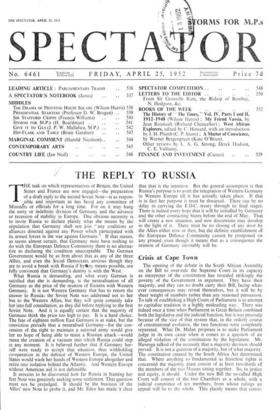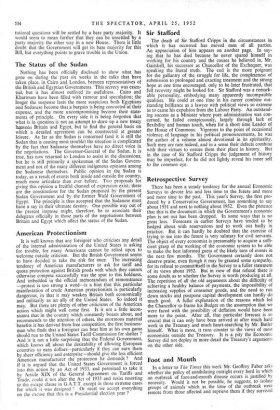Crisis at Cape Town
The opening of the debate in the South African Assembly on the Bill to over-rule the Supreme Court in its capacity as interpreter of the constitution has revealed strikingly the poverty of the Government in argument. They have their majority, and they can no doubt carry their Bill, facing what- ever consequences may reveal themselves, but it will be by sheer weight of numbers rather than any reasoned persuasion. To talk of establishing a High Court of Parliament is to attempt to capitalise tradition in a highly misleading way. There was indeed once a time when Parliament in Great Britain combined both the legislative and the judicial function, but it was precisely because of the vice of that system that, in the orderly course of constitutional evolution, the two functions were completely separated. What Dr. Malan proposes is to make Parliament judge in its own cause when it comes to a question of an alleged violation of the constitution by the legislature. Mr. Havenga talked of the necessity that a majority decision should prevail. It is not a question of a majority, but of what majority. The constitution created by the South Africa Act determined that. Where anything so fundamental as franchise rights is concerned the majority must consist of at least two-thirds of the members of the two Houses sitting together. So, in justice and equity, it should. Under the new Bill the so-called High Court will consist of the two Chambers as a whole, with a judicial committee of ten members, from whose rulings an appeal will lie to the whole. This plainly means that consti- tutional questions will be settled by a bare party majority. It would seem to mean further that they can be unsettled by a party majority the other way in a new House. There is little doubt that the Government will get its bare majority for this Bill, but everything points to grave trouble in the Union.



































 Previous page
Previous page